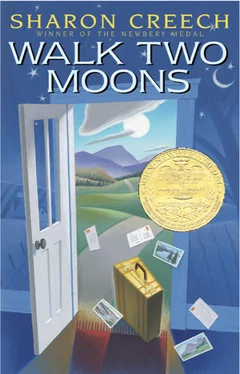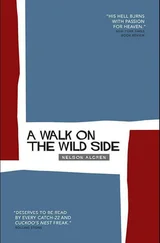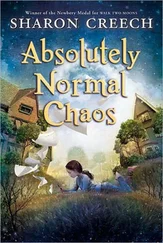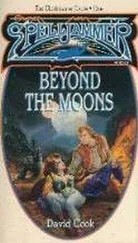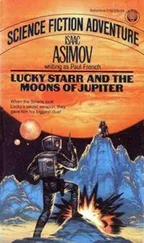“Yes!” she said when she hung up. “Yes, yes, yes!” She was hugging me half to death. “You’ll have to do Phase Two. Tonight.”
That night, while my father was at Margaret’s, I phoned the Bickles. I prayed that Sergeant Bickle wouldn’t answer, but I was prepared to disguise my voice in case he did. The phone rang and rang. I hung up. I rehearsed my voice and what I would say. I tried again. On the seventh ring, the phone was answered. It was Sergeant Bickle.
“My name is Susan Longfellow,” I said. “I’m a friend of your son’s. I was wondering if I might speak with him.” I prayed and prayed that he had only one son.
“He isn’t here,” Sergeant Bickle said. “Would you like to leave a message?”
“Do you know when he’ll be home?”
There was a pause. “How did you say you know my son?”
This made me nervous. “How do I know your son? Well, that’s a long story—I—basically, the way I know him is—actually, this is a little embarrassing to admit”—my hands were sweating so much I could hardly hang on to the phone—“the library, yes, I know him from the library, and he loaned me a book, but I’ve lost the book—”
“Maybe you should explain this all to him,” Sergeant Bickle said.
“Yes, maybe I should do that.”
“I wonder why he gave you this phone number,” he said. “I wonder why he didn’t give you his number at school.”
“At school? Actually, the thing is, I think he did give me that number too, but I’ve lost it—”
“You sure lose a lot of things,” he said. “Would you like his number at school?”
“Yes,” I said. “Or better yet, maybe you could give me his address and I’ll just send him the book.”
“I thought you said you lost the book.”
“Actually, yes, but I’m hoping to find it,” I said.
“I see,” he said. “Just a minute.” There was a muffled pause as he put his hand over the receiver and called, “Honey, where’s Mike’s address?”
Mike! Brilliant! A name! I felt like the Chief Inspector! I felt like I had just discovered the most important clue in the criminal investigation of the century. To top it off, Sergeant Bickle gave me Mike’s address. I was sorely tempted to end the conversation by informing Sergeant Bickle that his son was a potential lunatic, but I refrained. I thanked him and immediately phoned Phoebe.
“You’re brilliant!” she said. “Tomorrow we’ll nail Mike the Lunatic.”
The next day, Saturday, when Phoebe and I reached the bus stop, Ben was standing there. “Oh crud,” Phoebe muttered. “Are you waiting for this bus? Are you going to Chanting Falls?”
“Yup,” he said.
“To the university?”
“Nope.” Ben pushed his hair from his eyes. “There’s a hospital there. I’m going to see someone.”
“So you’re taking this bus,” Phoebe said.
“Yes, Free Bee, I am taking this bus. Do you mind?”
The three of us sat on the long bench at the back of the bus. I was in between Phoebe and Ben, and his arm pressed up against mine. Phoebe said we were visiting an old friend, at the university. Each time we rounded a curve, Ben leaned against me or I leaned against him. “Sorry,” he said. “Sorry,” I said.
At Chanting Falls, we stood on the pavement as the bus roared off. “The university is over there—” Ben pointed down the road. “See ya.” And he walked off in the other direction.
“Oh lord,” Phoebe said. “Why did Ben have to be on the same bus? It made me very nervous.”
It made me nervous too, but for different reasons. Every time I was with him now, my skin tickled and my brain buzzed and my blood romped around as if it were percolating.
The address we had for Mike Bickle was a freshman dormitory. It was a three-story brick building, with hundreds of windows. “Oh no,” Phoebe wailed. “I thought it might be a little house or something.” Students were coming in and out of the building and walking across the lawn. Some were sitting on the grass or benches studying. In the lobby was a reception desk, with a handsome young man standing behind it. “You do it,” Phoebe said. “I just can’t.”
We stood out like pickles in a pea patch. There were all these grown-up college students and here we were, two puny thirteen-year-old girls. Phoebe said, “I wish I had worn something else.” She picked lint off her sweater.
I explained to the man at the desk that I was looking for my cousin, Mike Bickle. The young man smiled a wide, white smile at me. He checked a roster and said, “You’re in the right place. Room 209. You can go on up.”
Phoebe nearly choked. “You mean we could go right up to his room?”
“Sure,” the young man said. “Through there.” He gestured.
We walked through swinging doors. Phoebe said, “Really, I’m having a heart attack, I know it. I can’t do this. Let’s get out of here.” At the end of the hall, we slipped out the exit. “What if we knocked on his door and he opened it and pulled us inside and slit our throats?”
Students were milling around on the lawn. I looked for an empty bench on which we might sit. On the far side of the lawn I saw the backs of two people, a young man and an older woman. They were holding hands. She turned to him and kissed his cheek.
“Phoebe—” On the bench was Phoebe’s mother, and she was kissing the lunatic.
Phoebe was stunned and angry, but she was braver than I was. She could watch, but I could not. I assumed that Phoebe would follow me, but I didn’t look back. Down the street I tore, trying to remember where the bus stop was. It wasn’t until I saw the hospital that I realized I must have missed the bus stop. I ducked inside and was surprised that Phoebe was not behind me.
What I did next was an impulse. A hunch. I asked the hospital receptionist if I could see Mrs. Finney. She flipped through a roster. “Are you a family member?” she said.
“No.”
“I’m afraid you can’t go up then,” she said. “Mrs. Finney is on the psychiatric ward. Family only.”
“I was looking for her son. He came here to visit her.”
“Maybe they went outside. You could look out back.”
Behind the hospital was a wide, sloping lawn, bordered by flower gardens. Scattered across the lawn were benches and chairs, most of them occupied with patients and their visitors. It was a scene much like the one I had just left at the university, except here no one was studying, and some of the people wore dressing gowns.
Ben was sitting cross-legged on the ground in front of a woman in a pink robe. She fidgeted with the sash. Ben saw me and stood up as I crossed the lawn. “This is my mother,” he said. I said hello, but she didn’t look at me. Instead, she stood and drifted off across the lawn as if we were not there. Ben and I followed.
She reminded me so much of my mother after she returned from the hospital. My mother would stop right in the middle of doing something inside the house and walk out the door. Halfway up the hill, she would sit down to catch her breath. She picked at the grass, got up again, and went a little farther. Sometimes my mother went in the barn and filled the pail with chicken feed, but before she reached the chicken coop, she set the pail down and moved off in another direction. When she could walk farther, my mother rambled over the fields and meadows, in a weaving, snaking pattern, as if she could not make up her mind which way to turn.
We followed Ben’s mother back and forth across the lawn, but she never seemed to notice our presence. At last I said I had to go, and that’s when it happened.
For one quick moment we both had the same agenda. I looked at him and he looked at me. Both of our heads moved forward. It must have been in slow motion, because I had a split second there to be reminded of Mr. Birkway’s drawing of the two heads facing each other, with the vase in between. I wondered, just for an instant, if a vase could fit between us.
Читать дальше
